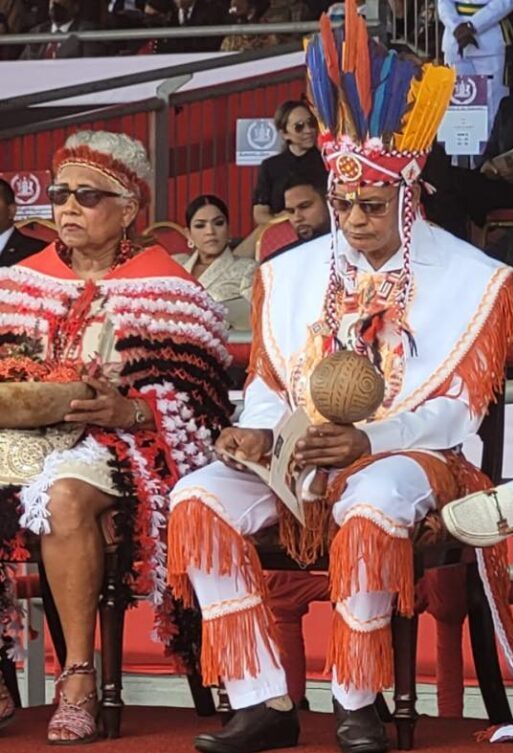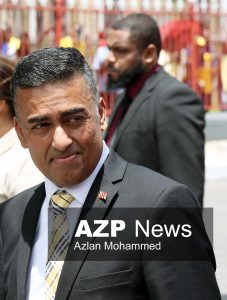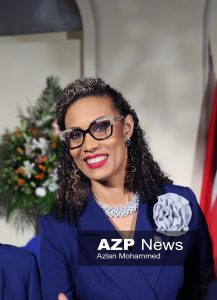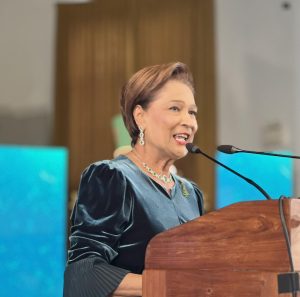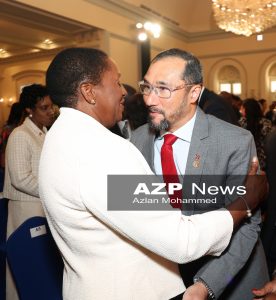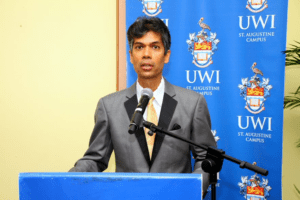
USUALLY, sustainable growth and improvements occurring in the developing countries are not truly reflective of the entire society.
Undoubtedly, there is unequal progress as rural areas and the poor
do not benefit. Indeed, unchecked industrialisation and urbanisation result in disproportional growth.
The encroachment on tribal and prime agricultural lands must not be allowed. The knowledge and oral histories of indigenous people must be preserved. These are priceless, invaluable aspects which should not be foolishly sacrificed or overlooked in the headlong rush to become ‘progressive’.
It is unfortunate that a great deal of the wisdom, philosophy and experience of many tribal elders and medicine men still remain undocumented.
The valuable history and experiences of the warriors, healers, fishermen, shamans and hunters have the
solutions to many of the problems facing humanity.
Thousands of tribes in New Guinea, Borneo, Alaska, Africa, Canada, the United States, Latin and South America seek protection from encroaching civilization and modernisation that threaten their simple lifestyles.
Tribal groups need protection and assistance in sustaining their communities and regaining the balance between humanity and the environment. The world must remember to be more sensitive and aware of the importance of tribal cultures and the contributions of indigenous people to the planet.
It is unfortunate that every year, the earth is burdened by an increasing human population. There
is an urgent need for the Global South to become more environmentally sensitized.
Furthermore, improper disposal of hazardous substances, the release of toxic fumes into the atmosphere and creation of slums have a burdensome effect on the sustainable development of the planet.
There must be enforcement of environmental laws and stiffer penalties to discourage abusers of the
environment. It is time for developed countries to stop their pontifical attitude and trite as they blame the developing nations for being largely responsible for environmental degradation and population explosion. Those in the developed world who are guilty of pollution must stop using developing countries as a dumping ground for toxic waste.
It is not too late for developing countries to declare war on pollution and recognise the need for drastic environmental measures. Environmental issues such as endangered species, deforestation, global warming, climatic change, and protection of the marine environment, need to be regularly discussed in the boardrooms and classrooms.
Progressive governments, the private sector, regional and international organisations must increase environmental awareness programmes.
The public needs to be constantly aware of the uses and availability of environmentally-friendly alternatives and the destruction of our global home. Recycling, energy-saving devices and solar power should become a common practice among households and companies.

One of the main reasons for the present condition of the Global South is that its people are too
busy fighting among themselves and thus unable to appreciate the significance of unity. They
argue and debate over petty differences such as language or land ownership and the superiority
of ethnicity, religion, gender, class and caste.
The result being that nobody is fully empowered.
Why bother with these irrelevant matters and insignificant issues when millions of human lives
are poor, oppressed, suffering, hungry and dying?
Undoubtedly, there is a dire need to formulate a comprehensive agenda, based on moral and ethical principles to serve as a blueprint for the continued growth of the Global South. There cannot be compromises, temporary or limited unity of the South. A country needs to be united at all levels in the society. This should be a high priority for all developing nations. An illustration is Nigeria which must be united as a nation, then continue the nation-building progress to the regional level, before the entire continent of Africa can take the first step towards comprehensive unity.
Similarly, the Brazilians, Hungarians, Indians, Polish or Romanians must be united as a nationality, as a people, and as a nation before they can form alliances and promote South-South cooperation. Citizens of developing countries cannot boast of being united when individuality exists and there are wars in the Middle East, hatred among Hindus and Muslims or senseless environmental destruction.
Dr Jerome Teelucksingh is an activist. He initiated the inaugural observances of International Day for the Elimination of Violence Against Men and Boys (January 31) and World Day of the Boy Child (May 16). He has made academic presentations at tertiary institutions including Harvard University and Oxford University.
See other articles by Dr Jerome Teelucksingh on AZP News:
The Law of Supply and Demand in Developing Countries
End the Dependency for Developing Countries
T&T Carnival and the Emperor’s New Clothes
The Influence of Labour on Caribbean Integration
The illusion of political Unity
Presbyterians in Trinidad: Humble Missionaries, Local Workers
Religious Plurality: Curse or Blessing
Caribbean Youth Need Optimism, Patriotism
Rethinking Identities in Caribbean, Latin America
November 19: All Inclusive International Men’s Day
Should International Agencies be Blamed for Unemployment
A Need to Observe Word Unemployment Day
An Ideology for the Trade Union Movement
The Man who Couldn’t be Prime Minister
Social Outburst vs Social Revolution
Challenges of the Men’s Movement
If George Floyd was Denied Parole
The Meaning of Indian Arrival Day in T&T
International Men’s Day – A Way of Life
Wounds that cause school violence
May Day: A Time for Solidarity, Strength
Who Coined the Term ‘Black Power’
The illusion of political Unity
Presbyterians in Trinidad: Humble Missionaries, Local Workers
Religious Plurality: Curse or Blessing
Caribbean Youth Need Optimism, Patriotism
Rethinking Identities in Caribbean, Latin America
November 19: All Inclusive International Men’s Day
Should International Agencies be Blamed for Unemployment
A Need to Observe Word Unemployment Day
An Ideology for the Trade Union Movement
The Man who Couldn’t be Prime Minister
Social Outburst vs Social Revolution
Challenges of the Men’s Movement
If George Floyd was Denied Parole
The Meaning of Indian Arrival Day in T&T
International Men’s Day – A Way of Life
Wounds that cause school violence
May Day: A Time for Solidarity, Strength
Who Coined the Term ‘Black Power’
![]()


